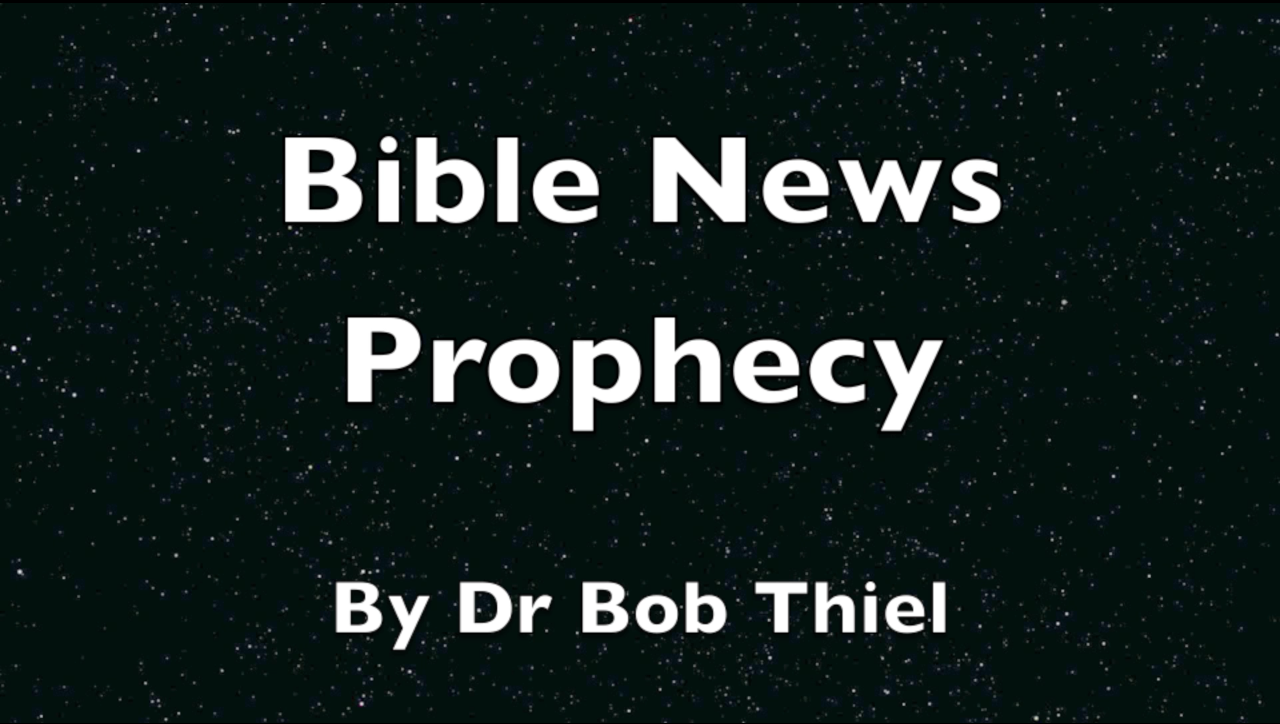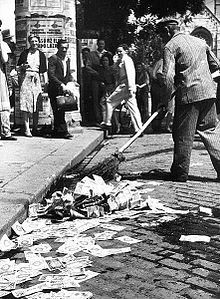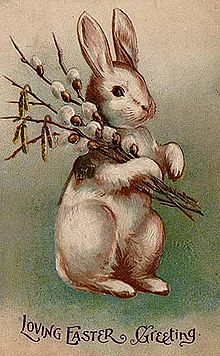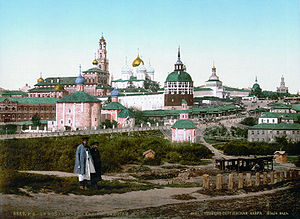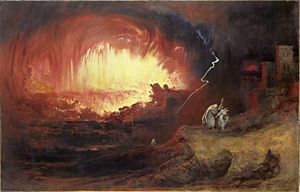Passover is about three weeks away (depending upon your time zone). And while most seem to consider that Passover is a Jewish holiday, the reality is that most who profess Christ actually are in churches that somewhat claim to observe Passover (although many call it something else–Easter). Here is a link to a YouTube video that goes through various scriptures and history about Christians keeping Passover: History of the Christian Passover.
Although most who profess Christianity now celebrate it, Easter-Sunday was not observed by the second century Christians in Asia Minor. They observed Passover.
However, beginning with possibly Telesphorus or possibly Hyginus or maybe even Sixtus (there are no contemporaneous records, only an unclear report 5-6 decades later written by Irenaeus), what is now called Easter began to be observed in Rome. First, it was apparently a change in date of Passover from the 14th of Nisan to a Sunday. This is believed to have happened because there was a rebellion by Jews and that any distancing between Jews and Christians seemed physically advantageous (at least to some in Rome and the Greeks in Jerusalem).
Samuele Bacchiocchi noted that the change to Easter-Sunday and to a weekly Sunday was due to persecution (the new Gentile hierarchy he is referring to are Greek bishops in Jerusalem, which took over after the rebellion was crushed):
The actual introduction of Easter-Sunday appears to have occurred earlier in Palestine after Emperor Hadrian ruthlessly crushed the Barkokeba revolt (A.D. 132-135)…
The fact that the Passover controversy arose when Emperor Hadrian adopted new repressive measures against Jewish religious practices suggests that such measures influenced the new Gentile hierarchy to change the date of Passover from Nisan 14 to the following Sunday (Easter-Sunday) in order to show separation and differentiation from the Jews and the Jewish Christians…
A whole body of Against the Jews literature was produced by leading Fathers who defamed the Jews as a people and emptied their religious beliefs and practices of any historical value. Two major causalities of the anti-Jewish campaign were Sabbath and Passover. The Sabbath was changed to Sunday and Passover was transferred to Easter-Sunday.
Scholars usually recognize the anti-Judaic motivation for the repudiation of the Jewish reckoning of Passover and adoption of Easter-Sunday instead. Joachim Jeremias attributes such a development to “the inclination to break away from Judaism.” In a similar vein, J.B. Lightfoot explains that Rome and Alexandria adopted Easter-Sunday to avoid “even the semblance of Judaism” (Bacchiocchi S. God’s Festival in Scripture and History. Biblical Perspectives. Befriend Springs (MI), 1995, pp. 101,102,103).
The respected Protestant scholar J.B. Lightfoot specifically wrote:
the Churches of Asia Minor which regulated their Easter festival by the Jewish passover without regard to the day of the week, but with those of Rome and Alexandria and Gaul which observed another rule; thus avoiding even the semblance of Judaism (Lightfoot, Joseph Barber. Saint Paul’s Epistle to the Galatians. Macmillan and co., limited, 1910. Original from the University of California. Digitized Oct 16, 2007, p. 331).
It is possible that the Roman “bishop” Telesphorus made a change to Sunday Passover around 135 A.D. to attempt to distance himself from the Jews in Rome. If he was the first Roman leader who did it, and if he thought that this would spare his life, he was wrong as he was apparently later killed by the Roman authorities (circa 136 A.D.). On the other hand, it is perhaps more likely that Hyginus, who was apparently Greek decided to introduce the Passover Sunday tradition in Rome, perhaps to direct the wrath of the anti-Jewish Roman authorities away from those who professed Christ but avoided some of the outward signs of Judaism. Christian leaders that refused to switch from Passover on the 14th to a Sunday observance have been labeled Quartodecimans (Latin for fourteenth) by most historians—with the bulk of them apparently being in Asia Minor near the end of the second century.
Since Roman Bishop Anicetus’ account (see below) claimed that this practice was began by presbyters who preceded him, it would need to have been no later than the Greeks Telesphorus or Hyginus, as they were followed by Pius who was then followed by Anicetus (it may have originated with Sixtus as he preceded Telesphorus, though he was not Greek, but he died during the time of Hadrian).
[It should be added here that because Dr. Bacchiocchi had an error on p. 81 of his book From Sabbath to Sunday regarding a statement from Epiphanius (he has that statement correct on page 161 of the same book), that some have erroneously felt that Passover should be on the 15th of the month. Suffice it to say that I have a copy of the relevant section of Epiphanius’ writings and he did not write anything about the 15th of the month being celebrated by the Jewish bishops (Epiphanius. The Panarion of Epiphanius of Salamis, Books II and III (Sects 47-80), De Fide). Section VI, Verses 9,7-10,1. Translated by Frank Williams. EJ Brill, New York, 1994, pp. 411-412). I have contacted Dr. Bacchiocchi about this point. Also, I should add that the observance of Passover on the 14th of Nisan is one of the historical signs of who may be part of the true Church of God. An article that discusses this in more depth would be TPM: Passover on the 14th or 15th?]
Of course the question is, “Was the church supposed to change its beliefs and practices throughout history or be faithful to what the apostles originally received?”
The Bible suggests that the church was not to change its doctrines as Jude wrote:
Beloved, while I was very diligent to write to you concerning our common salvation, I found it necessary to write to you exhorting you to contend earnestly for the faith which was once for all delivered to the saints (Jude 3).
Around 155 A.D. Polycarp of Smyrna went to Rome to deal with various heretics and he tried to persuade the Anicetus not to change Passover to an Easter Sunday holiday. Irenaeus records this about Passover:
And when the blessed Polycarp was sojourning in Rome in the time of Anicetus, although a slight controversy had arisen among them as to certain other points…For neither could Anicetus persuade Polycarp to forego the observance [in his own way], inasmuch as these things had been always observed by John the disciple of our Lord, and by other apostles with whom he had been conversant; nor, on the other hand, could Polycarp succeed in persuading Anicetus to keep [the observance in his way], for he maintained that he was bound to adhere to the usage of the presbyters who preceded him. And in this state of affairs they held fellowship with each other; and Anicetus conceded to Polycarp in the Church the celebration of the Eucharist, by way of showing him respect (Irenaeus. FRAGMENTS FROM THE LOST WRITINGS OF IRENAEUS, Chapter 3. Translated by Alexander Roberts and James Donaldson. Excerpted from Volume I of The Ante-Nicene Fathers (Alexander Roberts and James Donaldson, editors); American Edition copyright © 1885. Electronic version copyright © 1997 by New Advent, Inc).
For it apparently was in Rome and Greco-Roman Jerusalem that the habit of changing the date of Passover began.
It may be of interest to note “And in Rome …Anicetus assumed the leadership of the Christians there… But Justin was especially prominent in those days” (Eusebius Church History. Book IV, Chapter 11). This may indicate that the heretic Justin Martyr influenced Anicetus so much that he would not agree to only observe the Nisan 14 Passover (Justin opposed various biblical practices).
However, those in Asia Minor, did not change the date in the second century.
Apollinaris was a church leader of Hierapolis in Phrygia of Asia Minor. Around 180 A.D. he wrote:
The fourteenth day, the true Passover of the Lord; the great sacrifice, the Son of God instead of the lamb, who was bound, who bound the strong, and who was judged, though Judge of living and dead, and who was delivered into the hands of sinners to be crucified, who was lifted up on the horns of the unicorn, and who was pierced in His holy side, who poured forth from His side the two purifying elements, water and blood, word and spirit, and who was buried on the day of the passover, the stone being placed upon the tomb (Apollinaris. From the Book Concerning Passover. Translated by Alexander Roberts and James Donaldson. Excerpted from Volume I of The Ante-Nicene Fathers. Alexander Roberts and James Donaldson, editors; American Edition copyright © 1885. Copyright © 2001 Peter Kirby).
One Anglican scholar noted:
…there is no doubt that Apollinarius was a Quartodeciman…Those who kept Passover in the evening understood it to be a repetition of the Lord’s Supper (Stewart-Sykes A. Melito of Sardis On Pascha. St. Vladimir’s Seminary Press, Crestwood (NY), 2001, p. 81).
Melito of Sardis of Asia Minor, probably by 180 A.D., wrote the following on Passover:
When Servilius Paulus was proconsul of Asia, at the time that Sagaris suffered martyrdom, there arose a great controversy at Laodicea concerning the time of the celebration of the Passover, which on that occasion had happened to fall at the proper season (Melito. Translation by Roberts and Donaldson. On the passover. Online version copyright © 2001 Peter Kirby. http://www.earlychristianwritings.com/text/melito.html 11/18/06).
Now comes the mystery of the passover, even as it stands written in the law…The people, therefore, became the model for the church, and the law a parabolic sketch. But the gospel became the explanation of the law and its fulfillment, while the church became the storehouse of truth…What is the passover? Indeed its name is derived from that event–”to celebrate the passover” (to paschein) is derived from “to suffer” (tou pathein). Therefore, learn who the sufferer is and who he is who suffers along with the sufferer. Why indeed was the Lord present upon the earth? In order that having clothed himself with the one who suffers, he might lift him up to the heights of heaven…So indeed also the suffering of the Lord, predicted long in advance by means of types, but seen today, has brought about faith, just because it has taken place as predicted. And yet men have taken it as something completely new. Well, the truth of the matter is the mystery of the Lord is both old and new–old insofar as it involved the type, but new insofar as it concerns grace. And what is more, if you pay close attention to this type you will see the real thing through its fulfillment. Accordingly, if you desire to see the mystery of the Lord, pay close attention to Abel who likewise was put to death, to Isaac who likewise was bound hand and foot, to Joseph who likewise was sold, to Moses who likewise was exposed, to David who likewise was hunted down, to the prophets who likewise suffered because they were the Lord’s anointed. Pay close attention also to the one who was sacrificed as a sheep in the land of Egypt, to the one who smote Egypt and who saved Israel by his blood. For it was through the voice of prophecy that the mystery of the Lord was proclaimed. And David said: Why were the nations haughty and the people concerned about nothing? The kings of the earth presented themselves and the princes assembled themselves together against the Lord and against his anointed. And Jeremiah: I am as an innocent lamb being led away to be sacrificed. They plotted evil against me and said: Come! let us throw him a tree for his food, and let us exterminate him from the land of the living, so that his name will never be recalled. And Isaiah: He was led as a sheep to slaughter, and, as a lamb is silent in the presence of the one who shears it, he did not open his mouth. Therefore who will tell his offspring? And indeed there were many other things proclaimed by numerous prophets concerning the mystery of the passover, which is Christ, to whom be the glory forever. Amen. When this one came from heaven to earth for the sake of the one who suffers, and had clothed himself with that very one through the womb of a virgin, and having come forth as man, he accepted the sufferings of the sufferer through his body which was capable of suffering. And he destroyed those human sufferings by his spirit which was incapable of dying. He killed death which had put man to death. For this one, who was led away as a lamb, and who was sacrificed as a sheep, by himself delivered us from servitude to the world as from the land of Egypt, and released us from bondage to the devil as from the hand of Pharaoh, and sealed our souls by his own spirit and the members of our bodies by his own blood. This is the one who covered death with shame and who plunged the devil into mourning as Moses did Pharaoh. This is the one who smote lawlessness and deprived injustice of its offspring, as Moses deprived Egypt. This is the one who delivered us from slavery into freedom, from darkness into light, from death into life, from tyranny into an eternal kingdom, and who made us a new priesthood, and a special people forever. This one is the passover of our salvation. This is the one who patiently endured many things in many people: This is the one who was murdered in Abel, and bound as a sacrifice in Isaac, and exiled in Jacob, and sold in Joseph, and exposed in Moses, and sacrificed in the lamb, and hunted down in David, and dishonored in the prophets. This is the one who became human in a virgin, who was hanged on the tree, who was buried in the earth, who was resurrected from among the dead, and who raised mankind up out of the grave below to the heights of heaven. This is the lamb that was slain. This is the lamb that was silent. This is the one who was born of Mary, that beautiful ewe-lamb. This is the one who was taken from the flock, and was dragged to sacrifice, and was killed in the evening, and was buried at night; the one who was not broken while on the tree, who did not see dissolution while in the earth, who rose up from the dead, and who raised up mankind from the grave below. This one was murdered (Melito. Homily On the Passover. Verses 11, 40,46-47, 58-72. Translation from Kerux: The Journal of Online Theology , http://www.kerux.com/documents/KeruxV4N1A1.asp 09/14/05).
Click here for a complete version of The Homily On the Passover by Melito. If your church does not teach you about the Passover and why you should observe it, your church simply is not following the teachings and practices of Early Christianity.
A decade or so after Melito’s death, Roman Bishop Victor tried to enforce the preferred Roman Sunday date for Passover and stop Christians from following the biblical date of Nisan 14.
The Orthodox Church reports this brief explanation of events in one of its timelines:
193 A.D. – Council of Rome, presided over by Bishop Victor, condemns the celebration of Pascha on Nisan 14, and addresses a letter to Polycrates of Ephesus and the Churches in Asia.
193 A.D. – Council of Ephesus, presided over by Bishop Polycrates, and attended by several bishops throughout Asia, reject the authority of Victor of Rome, and keep the Asian paschal tradition (Markou, Stavros L. K. An Orthodox Christian Historical Timeline. Copyright © 2003 OrthodoxFaith.com).
The Catholic writer Lopes noted this about the Roman bishop Victor:
14. VICTOR I, ST. (189-199) An African…Victor tended not to advise other churches but to impose Rome’s ideas on them, thus arousing resentment at times in bishops not inclined to accept such impositions. This was the case of Polycratus, the Bishop of Ephesus, who felt offended at this interference. The question was again that of Easter. Victor reaffirmed the decisions of Soter and Eleutherius both with regard to the date, which had to be a Sunday, and with regard to several customs of Jewish origin which were still practiced in some Christian communities…Polycratus justified himself before the pope with a letter containing the phrase “…it is more important to obey God rather than men” (Lopes A. The Popes: The lives of the pontiffs through 2000 years of history. Futura Edizoni, Roma, 1997, p. 5).
The Catholic writer Eusebius recorded that Polycrates of Ephesus, around 195 A.D. wrote the following to the Roman Bishop Victor who, as the previous writing showed, wanted those who professed Christ to change Passover from the 14th of Nisan to Sunday:
We observe the exact day; neither adding, nor taking away. For in Asia also great lights have fallen asleep, which shall rise again on the day of the Lord’s coming, when he shall come with glory from heaven, and shall seek out all the saints. Among these are Philip, one of the twelve apostles, who fell asleep in Hierapolis; and his two aged virgin daughters, and another daughter, who lived in the Holy Spirit and now rests at Ephesus; and, moreover, John, who was both a witness and a teacher, who reclined upon the bosom of the Lord, and, being a priest, wore the sacerdotal plate. He fell asleep at Ephesus. And Polycarp in Smyrna, who was a bishop and martyr; and Thraseas, bishop and martyr from Eumenia, who fell asleep in Smyrna. Why need I mention the bishop and martyr Sagaris who fell asleep in Laodicea, or the blessed Papirius, or Melito, the Eunuch who lived altogether in the Holy Spirit, and who lies in Sardis, awaiting the episcopate from heaven, when he shall rise from the dead? All these observed the fourteenth day of the passover according to the Gospel, deviating in no respect, but following the rule of faith. And I also, Polycrates, the least of you all, do according to the tradition of my relatives, some of whom I have closely followed. For seven of my relatives were bishops; and I am the eighth. And my relatives always observed the day when the people put away the leaven. I, therefore, brethren, who have lived sixty-five years in the Lord, and have met with the brethren throughout the world, and have gone through every Holy Scripture, am not affrighted by terrifying words. For those greater than I have said ‘ We ought to obey God rather than man’ (Eusebius. Church History, Book V, Chapter 24. Translated by Arthur Cushman McGiffert. Excerpted from Nicene and Post-Nicene Fathers, Series Two, Volume 1. Edited by Philip Schaff and Henry Wace. American Edition, 1890. Online Edition Copyright © 2004 by K. Knight).
Notice that Polycrates said that he and the other early church leaders (like the Apostles Philip and John, and their successors like Polycarp, Thraseas, Sagaris, Papirius, Melito) would not deviate from the Bible, and that they knew the Bible taught them to keep the Passover on the correct date, and not on a Sunday. Also notice that they always observed the day when the people put away the leaven. Polycrates also reminded the Roman bishop that true followers of Christ “obey God rather than men”.
Hence it is clear that throughout the second century, the churches in Asia Minor continued to observe the Passover on the 14th of Nisan (and for doing so, they were labeled as Quartodecimans by the Romans), unlike the Romans, and they refused to accept the authority of any Roman bishop over scripture.
Notice that Polycrates specifically claimed that he followed what John did. Now notice that John calls those who do not follow what he taught as antichrists:
Little children, it is the last hour; and as you have heard that the Antichrist is coming, even now many antichrists have come, by which we know that it is the last hour. They went out from us, but they were not of us; for if they had been of us, they would have continued with us; but they went out that they might be made manifest, that none of them were of us (1 John 2:18-19).
Thus, this subject of Passover is important (see also the article Doctrines of Antichrist).
In addition, notice what a respected Protestant scholar reported about the second century:
The most important in this festival was the passover day, the 14th of Nisan…In it they ate unleavened bread, probably like the Jews, eight days through…there is no trace of a yearly festival of the resurrection among them…the Christians of Asia Minor appealed in favor of their passover solemnity on the 14th Nisan to John (Gieseler, Johann Karl Ludwig. A Text-book of Church History. Translated by Samuel Davidson, John Winstanley Hull, Mary A. Robinson. Harper & brothers, 1857, Original from the University of Michigan, Digitized Feb 17, 2006, p. 166).
So, like the Apostle John (the last of the original apostles to die), the early faithful Christians observed Passover and the Days of Unleavened Bread.
Late Second/Early Third Century
Although he was not part of the Church of God and held some unbiblical views, Tertullian noted:
“Purge out the old leaven, that ye may be a new lump, as ye are unleavened.” The unleavened bread was therefore, in the Creator’s ordinance, a figure of us (Christians). “For even Christ our passover is sacrificed for us.” But why is Christ our passover, if the passover be not a type of Christ, in the similitude of the blood which saves, and of the Lamb, which is Christ? Why does (the apostle) clothe us and Christ with symbols of the Creator’s solemn rites, unless they had relation to ourselves? (Tertullian. Against Marcion, Book V, Chapter 7. Excerpted from Ante-Nicene Fathers, Volume 3. Edited by Philip Schaff, D.D., LL.D. American Edition, 1885. Online Edition Copyright © 2005 by K. Knight).
Tertullian raised some appropriate questions above. Since the days of unleavened bread were a figure for Christians, and Passover is a type of Christ, why does the New Testament endorse these rites unless they were to be observed by Christians?
Even though true Christians claimed that they were simply following Jesus’ example and the Bible, they were condemned by Roman leaders because of it. According to The Catholic Encyclopedia, in the third century:
Hippolytus was the most important theologian and the most prolific religious writer of the Roman Church in the pre-Constantinian era (St. Hippolytus of Rome, The Catholic Encyclopedia, 1910).
Yet he condemned Christians who felt that they needed to keep the Passover on the correct date and he considered them to be a cause of trouble. Notice:
(from the Paschal Chronicle, PG 92.80-81)…I see now what the cause of the disquiet is. For somebody might say “Christ kept the Pascha and then, during the day he died. It is necessary for me to do what the Lord did, just as he did it.” They are in error…he himself was the Pascha which was announced in advance, and which was fulfilled on the appointed day.
(from the Refutatation of All Heresies, 8.18) There are others, fractious by nature…who maintain that it is necessary to keep the Pascha on the fourteenth of the first month in accordance with the provision of the law, on whatever day it might fall…In other things they conform to everything which has been handed down to the church by the apostles (as cited in Stewart-Sykes A. Melito of Sardis On Pascha. St. Vladimir’s Seminary Press, Crestwood (NY), 2001, p. 81).
Thus, there were repeated attempts by Roman-supporting leaders to condemn those who kept the Passover on the 14th. Those who consider themselves Christians, but do not observe the Passover on the 14th are following the lead of those Roman-supporting leaders (the first Roman-supporting leader to clearly distance himself on this subject was the heretic Justin in circa 135).
But notice what the Apostles Paul and John taught:
1 Be ye followers of me, as I also am of Christ. (1 Corinthians 11:1, Douay-Rheims)
11 Dearly beloved, follow not that which is evil, but that which is good. He that doth good, is of God: he that doth evil, hath not seen God. (3 John 11, Douay-Rheims)
Thus, the early Christians absolutely should have followed Jesus’ practice and kept Passover when He did. Yet some associated with Rome have long taught otherwise.
The Fourth Century
In spite of the condemnations, Passover was always kept on the 14th of Nisan by those who claimed to be faithful to the practices of the Apostle John and the Bible.
However, even after condemnations from Bishops Victor and Hippolytus, even many of those with a Roman Catholic or Eastern Orthodox background, continued to keep Passover on the 14th of Nisan until at least sometime into the fourth century.
But Emperor Constantine did not like that at all and convened the famous Council of Nicea in 325 A.D. to decide on a universal date:
…the emperor…convened a council of 318 bishops…in the city of Nicea…They passed certain ecclesiastical canons at the council besides, and at the same time decreed in regard to the Passover that there must be one unanimous concord on the celebration of God’s holy and supremely excellent day. For it was variously observed by people… (Epiphanius. The Panarion of Epiphanius of Salamis, Books II and III (Sects 47-80), De Fide). Section VI, Verses 1,1 and 1,3. Translated by Frank Williams. EJ Brill, New York, 1994, pp.471-472). A Sunday date was selected, instead of Nisan 14 (which can fall on any day of the week).
Notice what Constantine declared about this:
The commemoration of the most sacred paschal feast being then debated, it was unanimously decided, that it would be well that it should be everywhere celebrated upon the same day. What can be more fair, or more seemly, than that that festival by which we have received the hope of immortality should be carefully celebrated by all, on plain grounds, with the same order and exactitude? It was, in the first place, declared improper to follow the custom of the Jews in the celebration of this holy festival, because, their hands having been stained with crime, the minds of these wretched men are necessarily blinded. By rejecting their custom, we establish and hand down to succeeding ages one which is more reasonable, and which has been observed ever since the day of our Lord’s sufferings. Let us, then, have nothing in common with the Jews, who are our adversaries. For we have received from our Saviour another way… (Theodoret of Cyrus. Ecclesiastical History (Book I), Chapter IX. Excerpted from Nicene and Post-Nicene Fathers, Second Series, Volume 3. Edited by Philip Schaff and Henry Wace. American Edition, 1892. Online Edition Copyright © 2005 by K. Knight).
Actually, the Saviour observed Passover on the 14th of Nisan. It is those who reject that ways of our Saviour who accept the decision of the Roman Emperor over the Bible who do not observe it then. Notice that the first consideration was to not follow the Jews–and they were the ones who followed the Bible. Second, he claimed that people always accepted his Sunday date, but there is absolutely no evidence of this–Sunday Passover was something that second century Romans implemented–there is no proof whatsoever that any observed it on Sunday prior to that, thus Constantine’s second reason is also in error.
According to Eusebius’ Life of Constantine, Book III chapter 18, a more accurate translation of that last line above from the Roman Emperor Constantine should be:
Let us then have nothing in common with the detestable Jewish crowd; for we have received from our Saviour a different way.
I do not recall Jesus indicating that Jews were detestable (He was a Jew) nor that He ever changed the date of Passover. But apparently Constantine felt otherwise. And the Sunday observance is now known as Easter (a related article of interest may be Did Early Christians Celebrate Easter?).
The Catechism of the Catholic Church teaches:
1170 At the Council of Nicea in 325, all the Churches agreed that Easter, the Christian Passover, should be celebrated on the Sunday following the first full moon (14 Nisan) after the vernal equinox (Catechism of the Catholic Church. Imprimatur Potest +Joseph Cardinal Ratzinger. Doubleday, NY 1995, p. 332).
But not that idea that “all the Churches agreed” is not true as the bishops from the faithful churches did not attend that Council.
Notice what the Roman Catholic priest and historian Bellarmino Bagatti wrote:
…the inhabitants of Syria, of Cilcia and of Mesopotamia were still celebrating Easter {Passover} with the Jews…
The importance of the matters to be discussed and the great division that existed had led Constantine to bring together a big number of bishops, including confessors of the faith, in order to give the impression that the whole of Christendom was represented.
In fact…the churches of Jewish stock had had no representation…From this we can conclude that no Judaeo-Christian bishop participated in the Council. Either they were not invited or they declined to attend. And so the capitulars had a free hand to establish norms for certain practices without meeting opposition or hearing other view points. Once the road was open future Councils would continue on these lines, thus deepening the breach between the Christians of two-stocks. The point of view of the Judaeo-Christians, devoid of Greek philosophical formation, was that of keeping steadfast to the Testimonia, and therefore not to admit any word foreign to the Bible, including Homoousion (Bagatti, Bellarmino. Translated by Eugene Hoade. The Church from the Gentiles in Palestine. Nihil obstat: Ignatius Mancini, 1 Februari 1970. Imprimi potest: Herminius Roncari, 26 Februari 1970. Imprimatur: +Albertus Gori, die 28 Februarii 1970. Franciscan Printing Press, Jerusalem, 1971, pp. 47-48).
So not every church was represented. Nor did everyone accept the degree of the sun-worshipping emperor as the Roman Catholic supporting Epiphanius noted a few decades after that Council:
The Quartodecimans contentiously keep Passover on one day, once per year…They keep the Passover on whichever day the fourteenth of the month falls…Christ had to be slain on the fourteenth of the month in accordance with the law (Epiphanius. The Panarion of Epiphanius of Salamis, Books II and III (Sects 47-80), De Fide). Section IV, Verses 1,3;1,6;2,6. Translated by Frank Williams. EJ Brill, New York, 1994, pp. 23-25).
The Quartodecimans only kept Passover once per year–not daily like most Roman Catholic priests do–not weekly or monthly like some Catholics/Protestants do. It is of interest to note that Epiphanius recognized that Jesus HAD to be slain on the 14th of the month. It is sad that he and others did not believe they needed to observe it when and how Jesus taught. Strangely he wrote this about the practices of the Greco-Roman church (which we now call Roman and Orthodox Catholics, but he calls “God’s holy church”):
But God’s holy church does not miss the truth in any way in her fixing the date of this mystery. She uses not only the fourteenth day. but also the seven days which recur order of the seven days of the week…And she uses not only the fourteenth day of the lunar month, but the course of the sun as well, to keep us from observing two Passovers in one year and not even one in another. We observe the fourteenth day, then, but we wait until after the equinox and bring the end of our full observance to the sacred Lord’s day (Epiphanius. The Panarion of Epiphanius of Salamis, Books II and III (Sects 47-80), De Fide). Section IV, Verses 3,1; 3,2; 3,3-4. Translated by Frank Williams. EJ Brill, New York, 1994, pp. 25).
Well, the Catholics most certainly do not observe Passover on the evening of the 14th unless that happens to fall when some observe an evening mass–the equinox argument is not scriptural. And since the “Lord’s Supper” is observed frequently, most practicing Catholics and Protestants do observe it more than once per year.
Epiphanius even admits that the church used to observe the 14th when he wrote:
Audians…they choose to celebrate the Passover with the Jews–that is they contentiously celebrate the Passover at the same time as the Jews are holding their Festival of Unleavened Bread. And indeed that this used to be the church’s custom (Epiphanius. The Panarion of Epiphanius of Salamis, Books II and III (Sects 47-80), De Fide). Section VI, Verses 8,11; 9,2. Translated by Frank Williams. EJ Brill, New York, 1994, pp. 410-411).
Anyway, since Constantine’s declarations did not stop everyone from properly observing Passover, a later Roman Emperor after he became a baptized “Christian” decreed the death penalty:
Edicts of Theodosius against the heretics, A.D. 380-394…Theodosius…decreed that…by the death of the offender; and the same capital punishment was inflicted on the Audians, or Quartodecimans, who should dare to perpetrate the atrocious crime of celebrating on an improper day the festival (Gibbon E. Decline and Fall of the Roman Empire, Volume III, Chapter XXVII. ca. 1776-1788).
The various enactments against heretics are contained in the Code of Theodosius (16. tit. 5. s. 6—23 ; and the commentary of Gothofredus): the Eunomians, whose guilt consisted in denying any resemblance between the two sub- tances, and who were accordingly Anomoeans, were also deprived of the power of testamentary disposition, and of taking by testamentary gift: they seem, in fact, to have been deprived of all the rights of citizens. The Manichaean heresy was punishable with death; and the same penalty threatened the Audians or the Quartodecimans, who celebrated the festival of Easter on the wrong day. To the reign of Theodosius belonged the glory or the infamy of establishing Inquisitors of Faith, who seem to have been specially enjoined to look after the crime of the Quartodecimans (Smith W. A Dictionary of Greek and Roman Biography and Mythology : Oarses-Zygia. J. Murray, 1890 Item notes: v. 3 Original from Harvard University Digitized Jul 8, 2008, p. 1064).
Is killing those that followed the example of Jesus and John to observe the Passover on the 14th instead of Sunday a sign of a true Christian leader or a sign of a supporter of antichrist? Notice that the office of the “Inquisitors” was actually first formed to deal with people who kept Passover on the original biblical date–did you know that the date of Passover was considered to be that important?
The Catholic and Orthodox saint John Chrysostom preached the following in 387 A.D.:
In speaking about this feast of the Passover, the Law says to them something such as this: “You will not be able to keep the Passover in any of the cities which the Lord your God gives to you.” The Law bids them keep the feast on the fourteenth day of the first month and in the city of Jerusalem. The Law also narrowed down the time and place for the observance of Pentecost, when it commanded them to celebrate the feast after seven weeks, and again, when it stated: “In the place which the Lord your God chooses.” So also the Law fixed the feast of Tabernacles. (4) Now let us see which of the two, time or place, is more necessary, even though neither the one nor the other has the power to save. Must we scorn the place but observe the time? Or should we scorn the time and keep the place? What I mean is something such as this. The Law commanded that the Passover be held in the first month and in Jerusalem, at a prescribed time and in a prescribed place…But the Passover comes to an end on the twenty-first of that month. If they began the feast on the fourteenth day of the first month and then continued it for seven days, they then come to the twenty-first …the Law said they must not observe those rituals outside Jerusalem (John Chrysostom. Homily IV Against the Jews IV:3-4,V:4,5. Catholic Christians of Antioch. Turning to Sabbath and The New Moon Day and Other Holy Days. 387 A.D.).
Although he is correct that the Bible specifies the dates of the Holy Days, John Chrysostom is incorrect that Jerusalem is the only place.
That is never taught in the law.
To the contrary, the Jews were not even in Jerusalem when God listed the holy days in the books of Exodus and Leviticus (Jerusalem was not taken by the children of Israel until after the death of Joshua, see Judges 1:1-8).
It is also clear from the testimonies of Polycarp, Melito, Apollinaris, and Polycrates, that the New Testament second century Christians observed Passover outside of Jerusalem, as they ALL lived in Asia Minor and none lived in Jerusalem.
Some articles for future interest may include the following:
The History of Early Christianity Are you aware that what most people believe is not what truly happened to the true Christian church? Do you know where the early church was based? Do you know what were the doctrines of the early church? Is your faith really based upon the truth or compromise?
Passover and the Early Church Did the early Christians observe Passover? What did Jesus and Paul teach? Why did Jesus die for our sins? If you prefer, here is a link to a YouTube video titled History of the Christian Passover.
Melito’s Homily on the Passover This is one of the earliest Christian writings about the Passover. This also includes what Apollinaris wrote on the Passover as well.
Is Lent a Christian Holiday? When did it originate? What about Ash Wednesday? If you observe them, do you know why?
Did Early Christians Celebrate Easter? If not, when did this happen? What do scholars and the Bible reveal?
What Do Roman Catholic Scholars Actually Teach About Early Church History? Although most believe that the Roman Catholic Church history teaches an unbroken line of succession of bishops beginning with Peter, with stories about most of them, Roman Catholic scholars know the truth of this matter. This eye-opening article is a must-read for any who really wants to know what Roman Catholic history actually admits about the early church.
Early Church History: Who Were the Two Major Groups Professed Christ in the Second and Third Centuries? Did you know that many in the second and third centuries felt that there were two major, and separate, professing Christian groups in the second century, but that those in the majority churches tend to now blend the groups together and claim “saints” from both? “Saints” that condemn some of their current beliefs. Who are the two groups?


